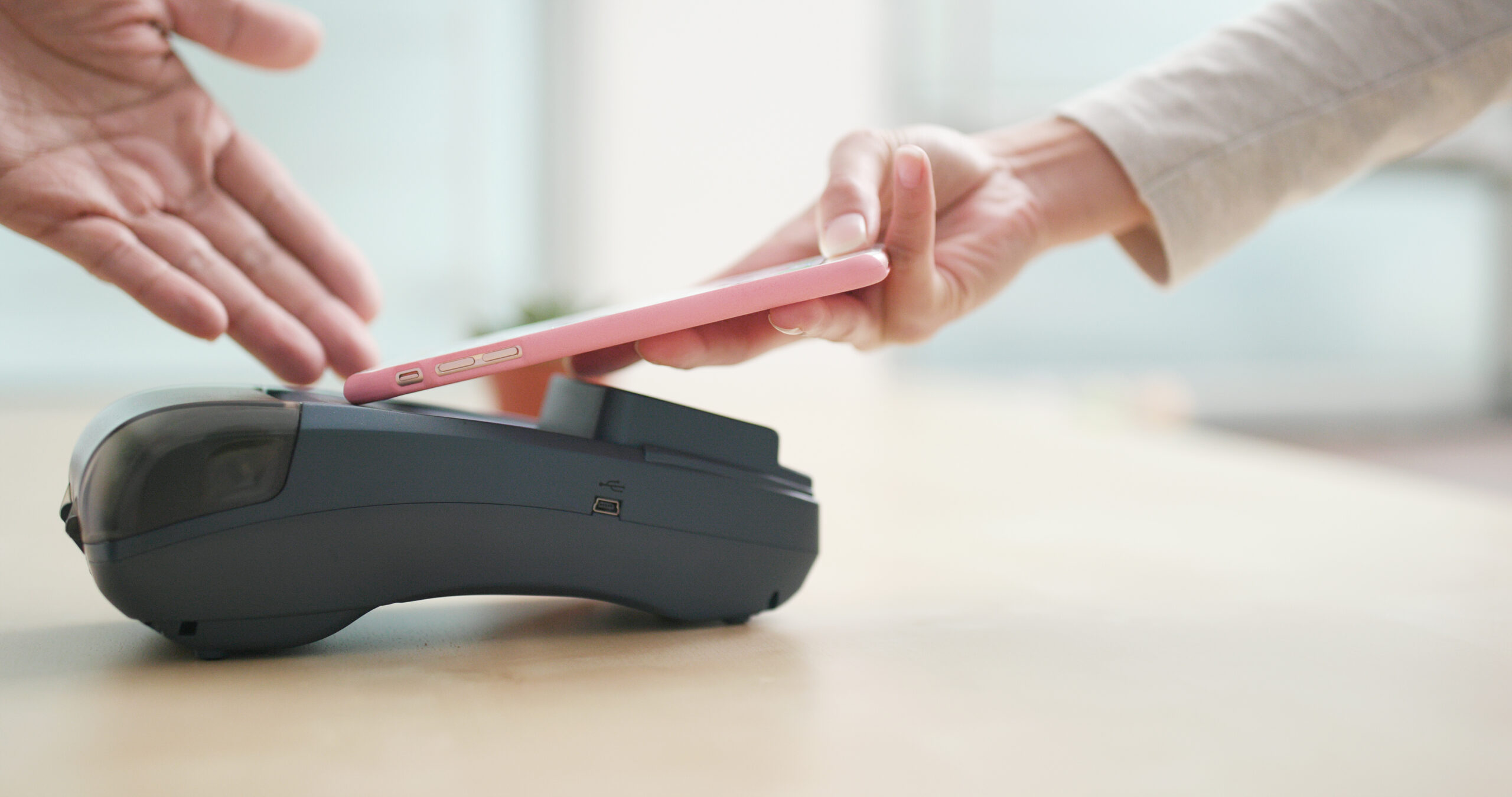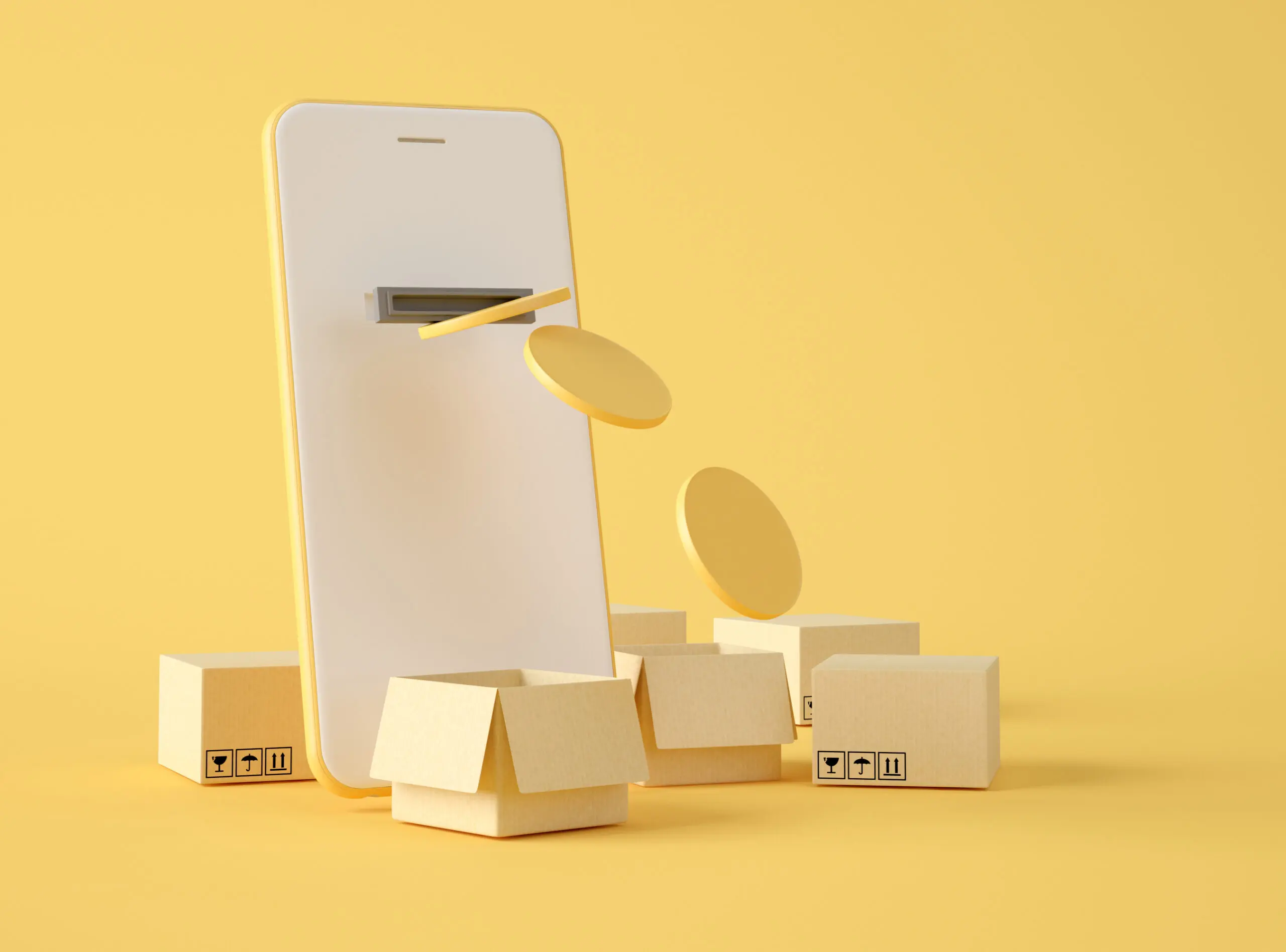Conduct electronic transactions on mobile devices.
Coined in 1977 by Kevin Duffey as a term to describe “the delivery of electronic commerce capabilities directly into the consumer’s hand, anywhere, via wireless technology”.
Definition: M-commerce (mobile commerce) is the purchasing or selling of products and services through handheld devices.
HOW IT WORKS
Users of this technology are able to make transactions anywhere there’s a wireless internet provider.
In order to develop an accessible and useful M-Commerce, which the ultimate goal is the conversion of users into customers, you have to take into account the following important factors:
- Total mobile traffic
- Total traffic on the app
- Average order value
- Value of orders over time
- Add to cart rate
- Page loading times
- SMS subscriptions
- And other factors

TYPES OF M-COMMERCE
Different M-commerce types can be categorized by function. And each of them will bring a distinct advantage to your business. Let’s explore some of them:
Mobile money transfer
It is movement of value made from a mobile wallet initiated by a mobile phone.
Mobile ticketing
It is the purchase of admission to events through mobile devices, including delivery of digital tickets.
Mobile vouchers, coupons and loyalty cards
It represents a collection of codes that grant access to protected content.
Content purchase and delivery
It’s the acquisition of any kind of content like ring-tones, wallpapers, apps, games, audio, video, and more.
Location-based services
It enables users to access resources such as local discount offers, local weather forecasts, tracking and monitoring.
Information services
It covers a diverse array of solutions like: news, stock quotes, sports scores, emergency alerts, traffic reporting, and more.
Mobile banking
Also known as m- banking, it allows users to access their account information and also make certain transactions.
Mobile brokerage
It enables users to take advantage of market developments in real time.
Mobile reverse auctions
Also known as low-bid auction, it charges the user for every time they place a bid; allowing for multiple transactions over a long period of time.
Mobile browsing
It allows users to search for items and purchase them online.
Mobile purchase
A transaction of goods and services directly from a mobile device.
In-application mobile phone payments
A payment made inside of an app running on a popular operating system.
Mobile marketing and advertising
It allows businesses to target messaging about their products to specific individual’s devices.

IMPACT OF M-COMMERCE
Add M-commerce to your company’s strategy repertoire.
Technological progress will change radically the way users make transactions. As new financial mobile options emerge handheld devices are rapidly becoming a suitable replacement for credit cards. Services (such as PayPal) make life easier for users that desire a more direct way to utilize their money.
This in turn allows companies to gather much more information about their consumers. And so, they can adapt to offer better products and services to users by targeting their necessities more efficiently. In the future different businesses will engage in a healthy competition for the attention and loyalty of the general public. In the open market that the World Wide Web facilitates M-commerce presents itself as a solution for both the convenience of consumers and the effectiveness of businesses.



